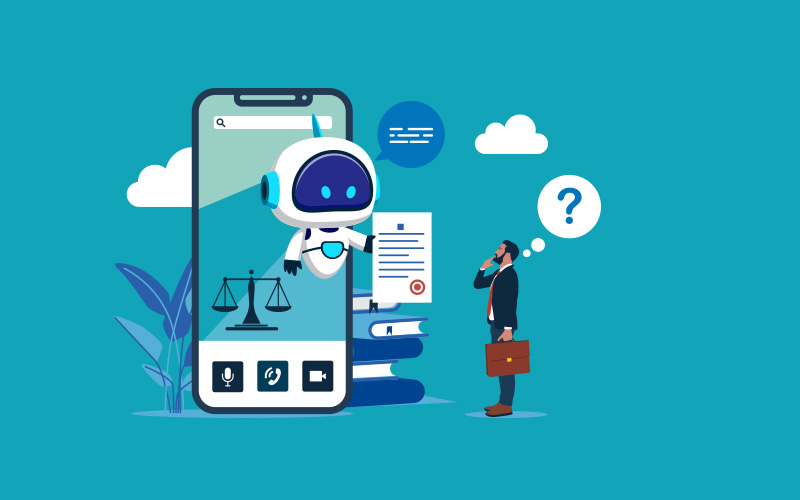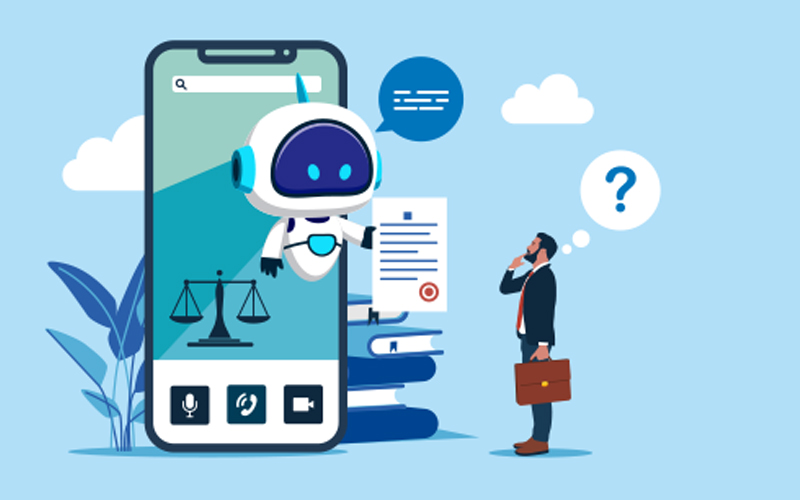Artificial intelligence is rapidly reshaping the business landscape, and legal functions are no exception. Legal departments must move from adapting to digital transformation to driving it. From automating legal workflows with AI to streamlining decision-making through advanced analytics, the possibilities are profound. With natural language processing, machine learning, and automation tools now more accessible than ever, legal teams are moving beyond manual tasks to unlock greater strategic value.
The demand for AI-driven legal solutions is only accelerating. According to recent forecasts, the global legal AI software market is set to grow from $2.79 billion in 2025 to $5.76 billion in 2029, at a CAGR of 19.9%. This growth reflects a strong shift towards scalable, intelligent operations that leverage artificial intelligence in law.
automating legal workflows with AI: key use cases
AI has introduced a new era of operational efficiency and accuracy in legal workflows. Legal teams today rely on smart automation to reduce bottlenecks, improve compliance, and boost speed-to-action. Some of the most impact ful use cases driving transformation include:
smart intake and triage through AI front doors
These tools capture, interpret, and route incoming requests efficiently. They act as the single point of entry to ensure the right teams receive the right tasks without delay.
conversational support with legal chatbots
AI-driven chatbots provide real-time support to internal teams and clients. They address FAQs, triage matters, and offer basic legal guidance to free up legal professionals for more strategic work.
contract lifecycle automation
From drafting to negotiation and execution, AI for legal document management automates contract workflows. This includes detecting risky clauses, tracking obligations, and streamlining approvals, making it easier to manage complex agreements.
intelligent matter management
AI enables matter tracking, workload balancing, and prioritisation based on historical data and resource availability. Legal departments gain transparency and can make more informed resourcing decisions.
accelerated legal research
AI-powered legal research tools help teams identify relevant case laws, statutes, and interpretations in seconds, drastically reducing time spent on repetitive searches.
scalable document review and eDiscovery
AI for legal documents simplifies large-scale document review for litigation and compliance. By identifying patterns and extracting relevant data, it helps cut down review cycles and costs.
legal analytics and predictive insights
Advanced algorithms assess historical case outcomes and trends to forecast potential results. Legal leaders can evaluate risk and guide case strategy more confidently.
proactive compliance and risk tracking
AI monitors regulatory changes, flags non-compliance, and generates alerts. Automating legal workflows with AI ensures timely actions and consistent governance across jurisdictions.
benefits and challenges of integrating artificial intelligence in law
AI in law offers compelling benefits to legal functions, but successful adoption requires thoughtful planning. Leaders must weigh both the upside and the complexity of integration.
The key benefits of artificial intelligence in law include:
- Boosting efficiency across high-volume legal processes.
- Improving accuracy by reducing human error.
- Reducing operational costs over time.
- Supporting smarter decision-making through real-time data.
- Enabling scalability without growing team size.
- Delivering faster, more responsive legal services to clients.
- Driving innovation and competitive advantage through early adoption.
However, legal leaders must also navigate the challenges, like:
- Raising concerns around fairness and trust due to algorithmic bias.
- Demands for robust security and privacy controls for sensitive legal data.
- Resistance from teams due to change management barriers.
- Need for human oversight to ensure contextual accuracy.
- Substantial upfront investment in tools and training.
automating legal workflows with AI: a step-by-step guide
To unlock the full potential of artificial intelligence in law, legal leaders must take a structured approach. Here are key steps to ensure seamless adoption and measurable outcomes:
identify the right processes to automate
Start by analysing where manual efforts are slowing things down. Repetitive, rules-based tasks – like contract reviews or request intake – are ideal candidates for AI-powered automation.
choose solutions tailored to legal needs
Not all AI tools are suitable for legal use. Prioritise platforms that align with compliance standards, data security needs, and domain-specific capabilities.
address ethical and data governance concerns
Define policies for responsible AI use. Evaluate data sources for bias and ensure systems meet regulatory and ethical standards from the outset.
engage teams with training and collaboration
Involve stakeholders early. Equip legal professionals with training to use AI tools effectively, and create a culture of innovation and openness.
integrate with existing tech infrastructure
AI in law works best when it connects seamlessly to current systems. Look for solutions that enhance – not replace – your existing legal tech stack.
Infosys BPM empowers legal teams to modernise service delivery through AI-driven transformation. Its legal process management solutions offer end-to-end support – from AI-powered contract analytics to workflow automation – enabling organisations to operate with greater agility, compliance, and cost efficiency.
The role of artificial intelligence in law is continuing to evolve. The next wave includes generative AI tools, intelligent virtual assistants, and predictive analytics that blend seamlessly with human expertise. This future promises greater precision, creativity, and strategic value as teams increasingly automate legal workflows with AI.
conclusion
Legal functions are evolving from support roles to strategic partners, and automating legal workflows with AI is at the core of that transformation. By embracing artificial intelligence in law, legal teams can streamline operations, reduce risk, and deliver faster, smarter services. Leveraging AI empowers teams to move from reactive tasks to proactive strategy. This shift is not just about efficiency; it is about leading legal innovation. Organisations that act now will shape the future of legal service delivery in a digitally driven world.








